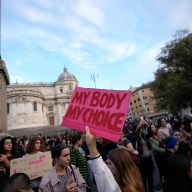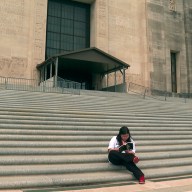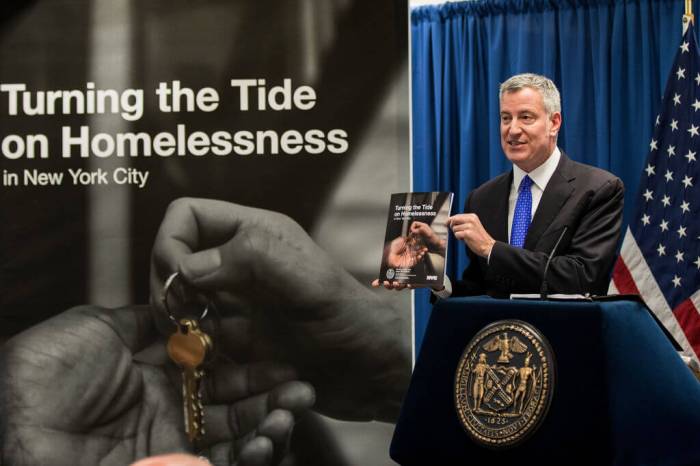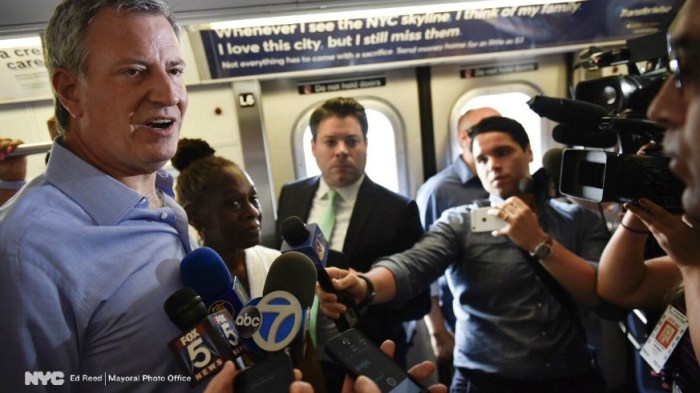Elected leaders and transit executives alike hailed the opening of the new 7 train station as transportation policy at its best, even as many of those celebrating the inaugural ride openly disagreed on how to pay for similar future projects.
State, city officials squabble over MTA funding at Hudson Yards ribbon cutting
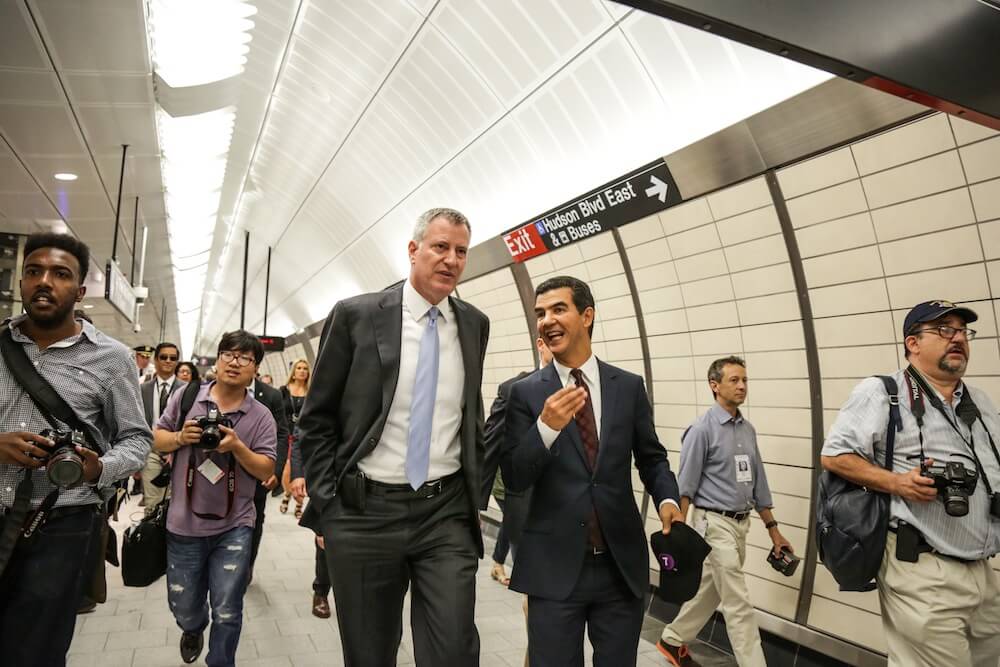
Miles Dixon/Metro
The crowd awaiting the ribbon cutting was treated to polite jabs between city and state officials fighting over whether City Hall should be responsible for closing the MTA’s current $27 billion budget gap for large-scale projects.
“This project is a perfect example of the city understanding its responsibility to support a transit system that sits at the very foundation of New York’s economic growth and success,” said MTA Chairman Thomas Prendergast.
It’s the second time in a week that Prendergast pointed towards City Hall. He linked the wall collapse in Brooklyn that derailed a G train and injured four to the budget gap, pressing the city to contributeabout $3.2 billion for its capital budget.
Mayor Bill de Blasio, who sat through Pendergrast’s public plea, said that city residents already pay theirfair share to the MTA through taxes, fares and tolls.
“I think it’s very important we remember the facts,” the mayor said after Pendergrast spoke. “The City of New York and the people of New York are the backbone of the funding of so much of the MTA.”
Instead, de Blasio said, the transit agency should look for more help from either Albany or Washington D.C.
De Blasio, who refilled his MetroCard at the Hudson Yards station, did not take questions from press after the event.
Prendergast told reporters the MTA did not want to have to pick between either expanding service or fixing stations but that the clock was ticking for a deal.
“We’re going to reach a point where we can’t wait any longer,” he said.
In June, de Blasio committed $657 million to the MTA’s capital budget, up from the previous $500 million, which Spitalnick said exceeded the MTA’s original ask.
“The city fully met the MTA’s funding request this spring, providing the largest general capital contribution to the state authority in recent history,” wrote de Blasio spokeswoman Amy Spitalnick in a statement, “only to have the MTA turn around the same day and ask for billions more.”
At the ceremony, Transit Workers Union Local 100 President John Samuelson implored elected officials to figure out how to bridge the funding gap in order to not just open new stations but keep existing ones in outer boroughs in good shape.
Samuelson told reporters that the MTA’s request of City Hall for $3.2 billion in city funds wasn’t uncalled for.
“It’s not an unreasonable request,” the union boss said, “It’s not an unreasonable demand on working people, to be honest.”
“The state should not be recruiting surrogates to attack the city when such serious issues are at stake,”Spitalnick added. “The state is responsible for the state-run MTA.”
Meanwhile, City Councilman Corey Johnson urged both sides to focus on solutions that can bring about more mass transit projects like the Hudson Yards station.
“It really should not be a political football,” Johnson said.
The Hudson Yards station, which was conceived by Mayor Michael Bloomberg’s administration, is the first to be paid for solely by the city through tax-exempt bonds in more than 60 years.






